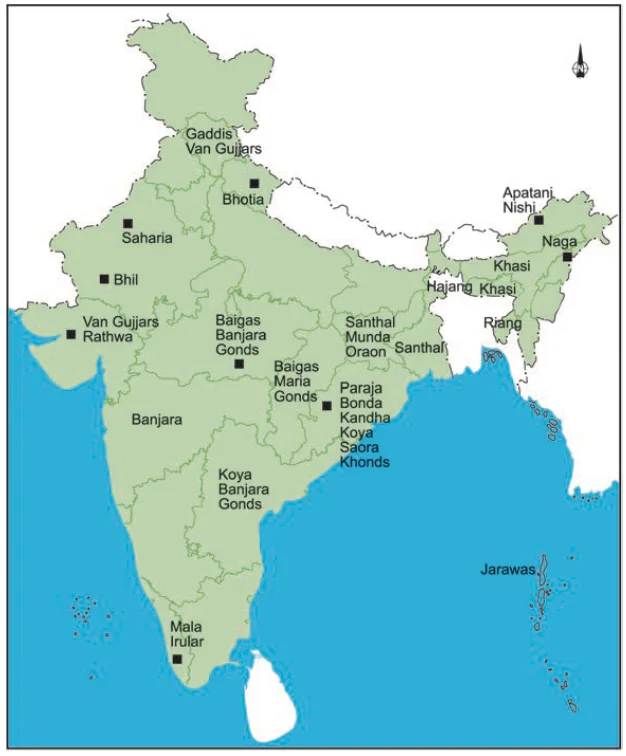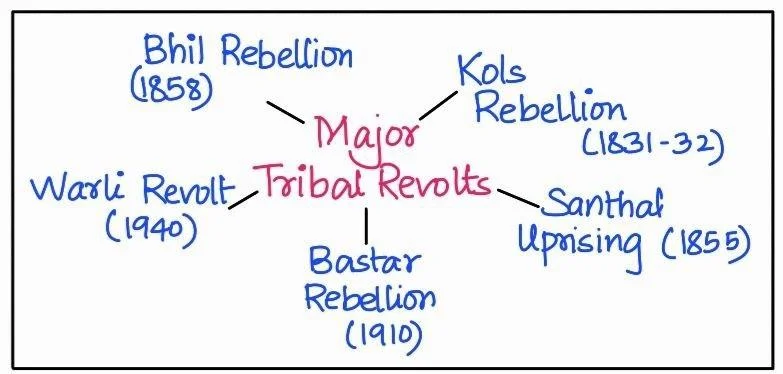![]() 25 Jun 2024
25 Jun 2024
The tribal groups in British India experienced profound changes during colonial rule. Forced displacement, exploitation of resources, and imposition of alien systems disrupted their traditional way of life. This period witnessed a struggle for autonomy, preservation of cultural identity, and resistance against oppressive colonial policies, shaping their socio-economic landscape significantly.
Jhum Cultivators :They practiced shifting cultivation, primarily in forests which involved cutting treetops, burning vegetation, and using ash as fertilizer.

A time to hunt, a time to sow, a time to move to a new field:
The second year had fewer crops and more hunting time, while the third year saw a reliance on forest products due to reduced food. |
On Tribal Chiefs: Before the British colonisation, tribal chiefs held pivotal roles in their communities, possessing economic and administrative power.
Economic Disruption: The colonial period witnessed a surge in industries such as tea plantations and mining, leading to economic upheaval among tribal communities.
Tribal Lamentations under British Rule
“In this land of the English how hard it is to live… To pay cattle tax we have to sell cow, To pay forest tax we have to sell buffalo, To pay land tax we have to sell bullock, How are we to get our food? In this land of the English.” |

Early Life: Birsa was born in the mid-1870s. The challenging economic circumstances of his family led them to migrate frequently.
| Must Read | |
| Current Affairs | Editorial Analysis |
| Upsc Notes | Upsc Blogs |
| NCERT Notes | Free Main Answer Writing |
Colonial rule disrupted tribal societies in India. Shifting cultivators, forest restrictions, and exploitative trade squeezed their livelihoods. Birsa Munda’s rebellion exemplified tribal resistance, leading to protective legislation but highlighting the ongoing struggle for tribal rights.
| Related Articles | |
| Tribal Communities in India | BRITISH POLICY IN INDIA |
| Economic Impact Of British Rule In India | Diverse Types of Agriculture |
<div class="new-fform">
</div>